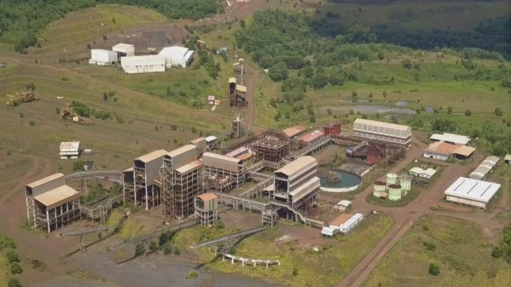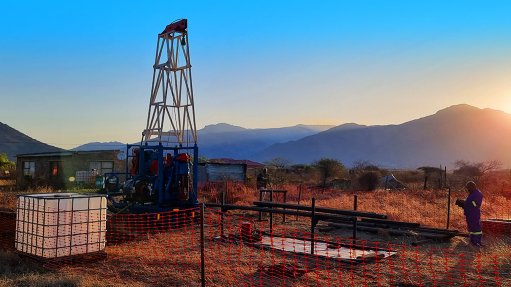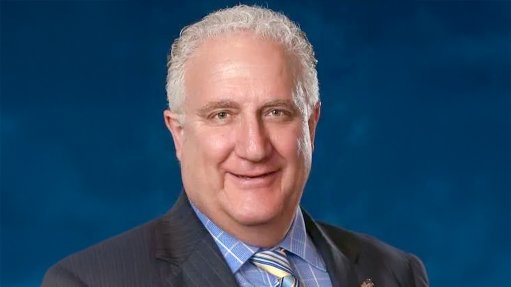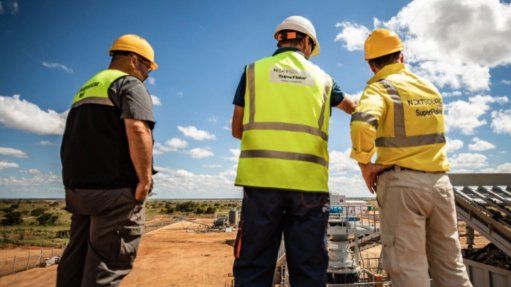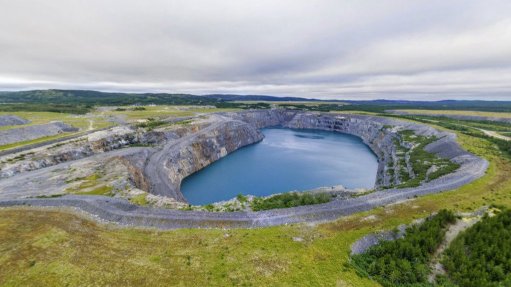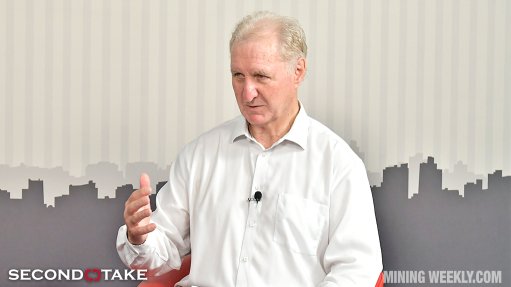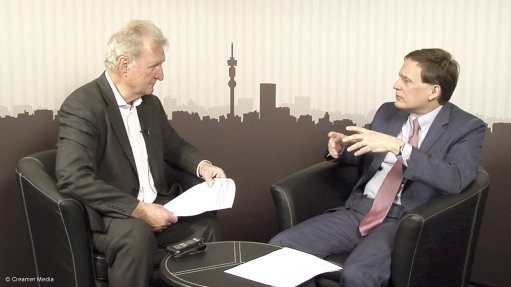New local zinc refinery deemed urgent

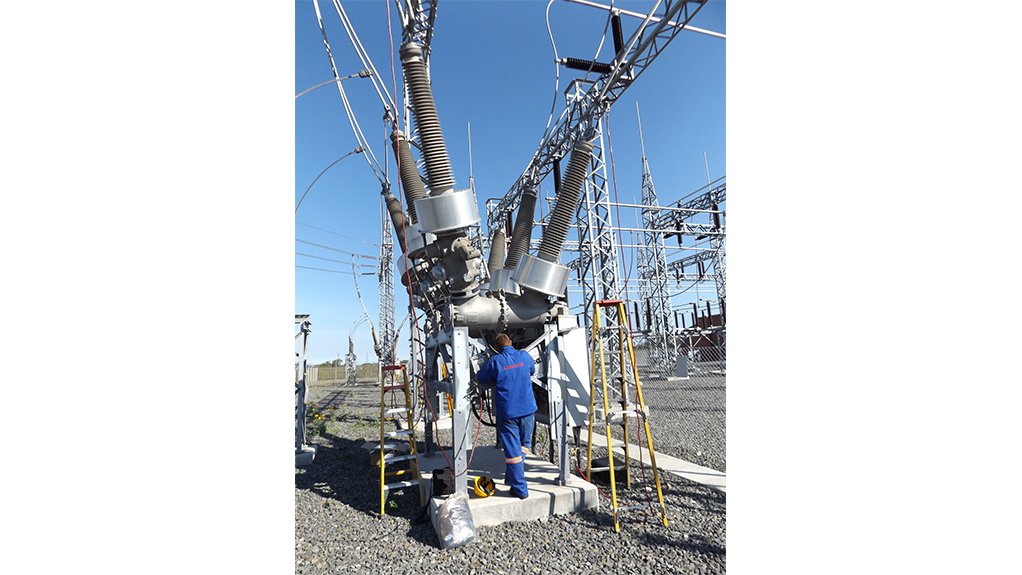
COAT OF PROTECTION Refined zinc is largely used for galvanising steel and steel sheeting for the civil engineering and construction industries
The use of the multipurpose base metal zinc in South Africa has “been through a rollercoaster over the past ten to 12 years”, says International Zinc Association (IZA) Africa Desk executive director Simon Norton. With the Zincor refinery – owned by minerals mining company Exxaro – being closed since 2011, all refined zinc has had to be imported from South Korea and Kazakhstan with dollar-denominated costs and pricing.
Until 2011, South Africa had access to 117 000 t of refined zinc, which was produced in Gauteng, and this tonnage largely met the local demand.
Refined zinc is largely used for galvanising steel and steel sheeting for the civil engineering and construction industries, notes Norton.
Since Zincor closed down in 2011, the imported tonnage of refined zinc has varied from 86 000 t in 2014 to 47 000 t in 2020, the latter as a result of Covid-19, to a generous recovery in 2021 of 72 000 t.
At the time of the Zincor closure, the London Metal Exchange price of special high-grade (SHG) zinc was R13 900/t, compared to R54 250/t in December 2022. This equates to a 400% increase in the rand cost of SHG refined zinc, which means it has become exorbitant to local users and drives up construction costs.
Further, Norton notes that four large zinc refineries in Europe either closed or reduced their output by 50% last year, driven by “green taxes” and the Russian government cutting gas supply following the outbreak of its war with Ukraine.
This means that the cost of imports to South Africa increased to nearly R71 000/t in early 2022, which puts local zinc users under huge price stress and directly impacts on the galvanising of steel.
Similarly, South Africa had five complex crude oil refineries until 2022, and could quickly vary refining processes to supply diesel fuel, petrol and Jet A1 fuel. However, four of these refineries shut down and the country now fully depends on fuel imports.
Norton adds that the 100% zinc and close to 100% petroleum product importation all consume hard-won foreign currency and removes the self-sufficiency and flexibility of South African industries, as well as placing it at the mercy of global logistical bottlenecks that arose in 2020 after Covid-19.
The largest challenge facing the zinc industry is the current lack of local civil engineering and construction projects, which he attributes to government’s actions and policies. “The zinc market in South Africa faces multiple challenges from all directions.
While the money for civil engineering and construction projects is available from tax collection last year, the allocation and use of the tax base is poor. The very low growth rate of about 1% a year also hinders new projects which would use galvanised steel,” laments Norton.
He notes that South Africa is richly endowed with zinc-rich orebodies in Gamsberg and Prieska, both in the Northern Cape.
A new local zinc refinery would supply the demand for local consumption of galvanised steel, kickstart electric vehicle and battery energy storage system research projects and allow for additional refined zinc exports, thereby earning the country valuable foreign currency.
“South Africa is a mega mining country and should be investing in value-added facilities such as a zinc refinery to add value to its own resources,” says Norton.
Further, zinc is sought after globally for its use in long-term and rechargeable batteries and South Africa cannot afford to fall behind in that area of research, given its electricity concerns. Meanwhile, the basic need to protect capital-intensive infrastructure against corrosion using hot dip galvanized steel remains vital.
Article Enquiry
Email Article
Save Article
Feedback
To advertise email advertising@creamermedia.co.za or click here
Press Office
Announcements
What's On
Subscribe to improve your user experience...
Option 1 (equivalent of R125 a month):
Receive a weekly copy of Creamer Media's Engineering News & Mining Weekly magazine
(print copy for those in South Africa and e-magazine for those outside of South Africa)
Receive daily email newsletters
Access to full search results
Access archive of magazine back copies
Access to Projects in Progress
Access to ONE Research Report of your choice in PDF format
Option 2 (equivalent of R375 a month):
All benefits from Option 1
PLUS
Access to Creamer Media's Research Channel Africa for ALL Research Reports, in PDF format, on various industrial and mining sectors
including Electricity; Water; Energy Transition; Hydrogen; Roads, Rail and Ports; Coal; Gold; Platinum; Battery Metals; etc.
Already a subscriber?
Forgotten your password?
Receive weekly copy of Creamer Media's Engineering News & Mining Weekly magazine (print copy for those in South Africa and e-magazine for those outside of South Africa)
➕
Recieve daily email newsletters
➕
Access to full search results
➕
Access archive of magazine back copies
➕
Access to Projects in Progress
➕
Access to ONE Research Report of your choice in PDF format
RESEARCH CHANNEL AFRICA
R4500 (equivalent of R375 a month)
SUBSCRIBEAll benefits from Option 1
➕
Access to Creamer Media's Research Channel Africa for ALL Research Reports on various industrial and mining sectors, in PDF format, including on:
Electricity
➕
Water
➕
Energy Transition
➕
Hydrogen
➕
Roads, Rail and Ports
➕
Coal
➕
Gold
➕
Platinum
➕
Battery Metals
➕
etc.
Receive all benefits from Option 1 or Option 2 delivered to numerous people at your company
➕
Multiple User names and Passwords for simultaneous log-ins
➕
Intranet integration access to all in your organisation







